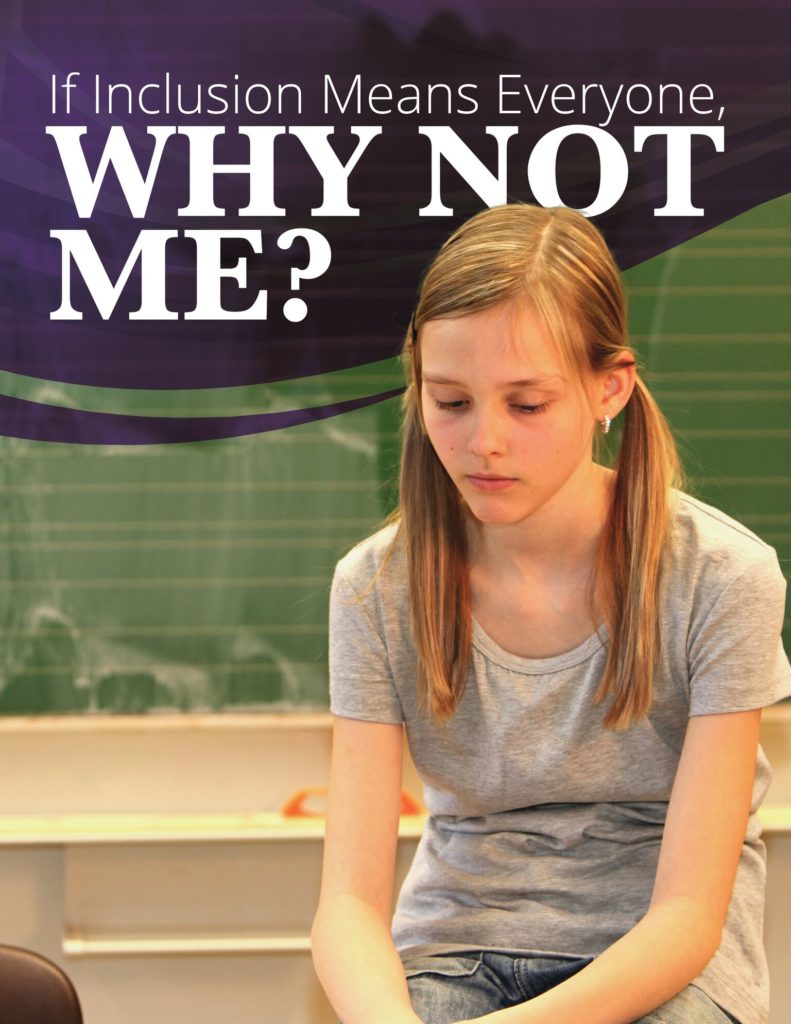 “If Inclusion Means Everyone, Why Not Me?” is a report on the state of inclusive education in Ontario, released today at Ryerson University.
“If Inclusion Means Everyone, Why Not Me?” is a report on the state of inclusive education in Ontario, released today at Ryerson University.
Click here to download “If Inclusion Means Everyone, Why Not Me?” Click here for the French version.
The launch of the report is the culmination of a year-long collaboration involving Inclusive Education Canada, Community Living Ontario, Western University, Brock University, ARCH Disability Law Centre, and Brockville and District Association for Community Involvement.
Data was compiled from survey results of 280 parents or guardians of students who have an intellectual disability who were enrolled in Ontario’s public education system or who had graduated in the last five years. 33 in-depth interviews were subsequently conducted to gain a greater understanding of the students’ experiences in school, including academic, social and extracurricular opportunities, as well as various aspects of their relationships with the school.
Gordon Porter, Director of Inclusive Education Canada, suggested the findings of the report are consistent with students’ experiences in other parts of Canada.
“Our work with families and parent groups across Canada reflects what is happening to far too many children in a number of provinces. This report will be useful to parents and advocates who want change in their schools,” added Porter.
The following is an overview of the survey results and interviews, grouped into five categories:
- Academic and social barriers: 67% of parents or guardians reported that students who have an intellectual disability often did not have access to the appropriate curriculum, or did not have the proper academic accommodations to make the curriculum accessible to them (53%).
- Students often did not participate in extracurricular school activities (62.7%).
- Exclusion: Students who have an intellectual disability were excluded from school or the classroom for disability-related reasons (45%).
- Conflict: 74% of parents or caregivers reported high levels of conflict with schools or school boards (56%), and they indicated that they had very limited recourse to appropriate dispute resolution mechanisms.
- Planning and communication: 32% of parents reported that they did not feel that they had been involved in the development of their child’s Individual Education Plan, even though school boards have a legal obligation to consult with parents with respect to the development of an accommodation plan.
- Leadership: Students who have an intellectual disability and their families were often dependent on the style, belief systems, and interpretation of service delivery of school leadership.
